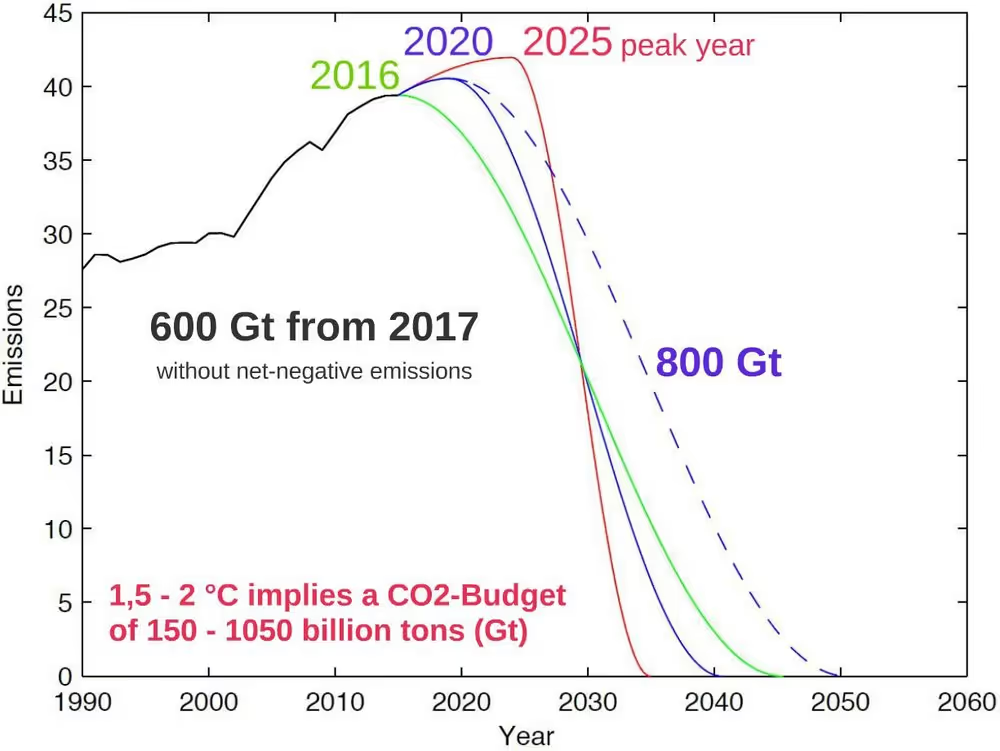Scientists, stop talking to a wall!

Climate scientists are calling for a radical change, but their appeals are directed at politicians. Really? Politics doesn’t drive transformation — you should address a very different group of people.
There is scientific consensus about the need for major shifts and disruption. However, if we look at the way scientists are putting their evidence to work, they tend to advise politicians and policymakers. If we look at prominent groups, such as Scientists4Future or the IPCC, as well as excellence clusters e.g. in CEN/CSS Hamburg or Marum/IUP Bremen — they all have been addressing politics for decades with clear messages. Yet, we see neither major shifts nor disruption in regulations.
Just last week, there was a huge opportunity for policy change regarding the Common Agriculture Policy vote. Despite urges and outrages from leading scientists and activists, this became another post-2020 “anti-science, anti-nature and anti sustainable farming” policy. A slap in the face, considering this decides ~40% of the total EU budget and defines the agenda until 2027 when even today would be too late.
The way scientists appeal allows politicians to procrastinate
There are countless other examples, that politicians aren’t the right people to address if asking for transformative change. Even the IPCC, widely regarded as the most successful initiative and source-of-truth for climate science, counts the setting of long-term goals as their main achievements. But unfortunately, these still allow procrastination for policy and economy, just as in the case of CAP. In fact, the well-known scientist Prof. Rahmstorf criticized that even years after the Paris agreements the actions and action plans of governments, in particular Germany, will lead to drastic overshooting of the Paris goals.

Unfortunately, this is the world we live in. Politics are reactive instead of proactive. Disruption will not happen in Brussels, Bonn, Berlin… or actually, let’s talk about Berlin!
Where disruption happens
Disruption means making an old system obsolete by creating something >10x better.
If it weren’t for Tesla, we’d have fewer EVs on the streets. More significantly, despite political protectionism, Tesla put pressure on the German automotive industry and made them care about e-mobility, thereby fostering technological progress and economic sustainability in Germany. (And what should I say, even the American investor BlackRock is punishing German bonds for their change resistance.)
This kind of pressure through innovation is also happening in the energy sector: companies like Lanzatech and Northvolt are significantly advancing the adoption of renewables and themselves spending much in R&D, thereby advancing our needed transformation close to the market.
The impact of ventures on how we live, consume, and develop in the future can be gigantic. By creating favorable startup conditions the US has shown just how much: since ’74 venture-backed companies invested 85% of all $11b R&D spendings (!!!). Today, they have a $4.2 trillion market capitalization which is 63% of the total of public companies.
Talk to those who listen!
Startups, as opposed to policymakers, are highly willing to listen to climate science and execute on the best data available. As a new PWC study on German startups found, 43% of them would categorize themselves into the “green economy”.
Creating more favorable startup conditions and therewith better climate tech outcomes has been addressed as part of the report “Building Momentum in Venture Capital across Europe”. Their suggestion to increase fund sizes is already happening with the climate tech VC market growing even 3x stronger than the AI VC market over the last 7 years.
Another main lever that the report suggested was to increase the quality and quantity of ventures through more effective R&D. To do this they mention raising R&D spend, bringing research closer to startups, creating innovation systems, promoting spinoffs from universities and scientific institutions, and other measures.
Let’s take our cooperation to the next level, we have no more time to waste
“There’s a knowledge gap”, an IPCC author told me to stress the need but also difficulties in working with startups. “We need more collaboration and tech or application-driven research. It’s hard to find user partners [aka. companies] for the academic co-design process with matching competencies, timelines, etc.”
Luckily, there are scientific pioneers starting to bridge that gap, such as Project Drawdown, a standard reference for impactful solutions, or Climate Change AI, a list of high impact problems that can be tackled with machine learning.
But we need more. Once politics start to get on board, we will have a lot to catch up. We don’t want to be in a situation where we need to panic and try out technologies that have not been thoroughly assessed.
Let’s not accumulate risks by waiting for the policy to change — let’s start to develop, test, and deploy the tech we need for a regenerative world, now.


.svg)
.svg)



.jpg)



.svg)



.jpg)
.png)